Alcohol in Turkey
What to drink in Istanbul?
Some travelers coming to Istanbul for the first time are surprised to discover that alcohol is consumed everywhere and that new bars are popping up all over the city. Indeed, although a part of the Turkish population is devout and that the ruling party is “Islamic-conservative”, Turkey is and remains a secular country with a great drinking tradition. Before introducing the different Turkish spirits that you can enjoy during your stay, here is the little history of consumption and alcohol production in Turkey.
HISTORY
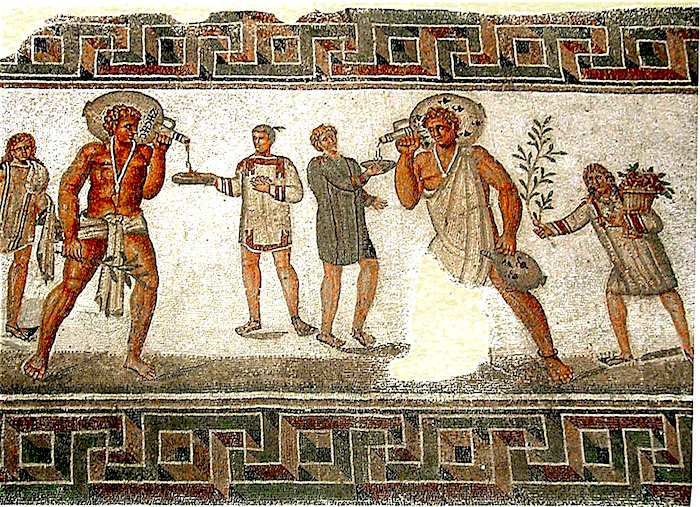
Byzantine mosaic on wine.
Turkey is one of the birthplaces of the first vineyards in the world with Georgia, Iran, and Armenia, the winemaking process then reached the Mediterranean basin during the Antiquity. Viticulture in Turkey appears for the first time during the Hittite Empire 2000 years BC, it was one of the most flourishing Mediterranean, but it disappeared with the fall of Constantinople and the arrival of the Ottoman Turks of Muslim cult.
The Ottoman Empire was quite tolerant of the religious communities and allowed non-Muslims of the empire, especially Greeks and Albanians to produce and consume their wines and other spirits. These communities hold many taverns of Constantinople. During the Tanzimat in the 19th century, Sultan lightened Islamic rules and guaranteed equality above the law for all Ottoman subjects, regardless of their religions. The Empire’s Muslims (who were already frequenting the taverns in secret) then went with less complex in establishments where alcohol was served and got in love for raki (aniseed alcohol like pastis or ouzo), which is now Turkey’s national alcohol.
Speaking of rakı, the founding father of the Turkish Republic, Mustafa Kemal Atatürk, could drink up a bottle a day.
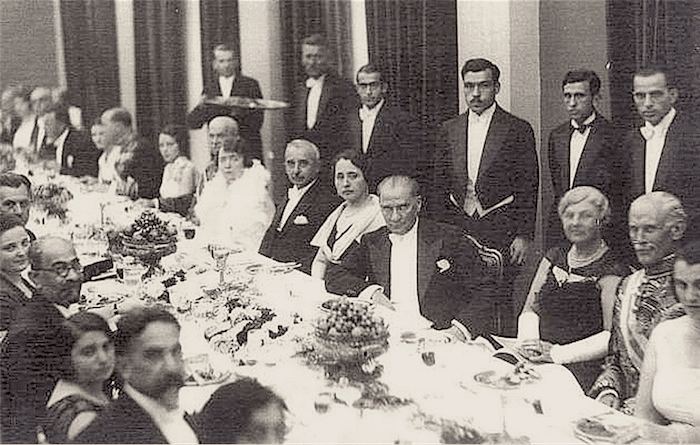
Mustafa, Kemal Atatürk, the founding father of modern Turkey.
NOWADAYS
Since 2002 Turkey has been governed by an Islamic-conservative government that tries to limit alcohol consumption by applying very high taxes, but, despite this, its consumption has increased in recent years. There was a 6.5% increase in sales between 2013 and 2014. In 2014, more than 1 billion 77 million liters were sold in the country. The most consumed alcohol is a beer with 943 million liters, followed by wine and rakı.
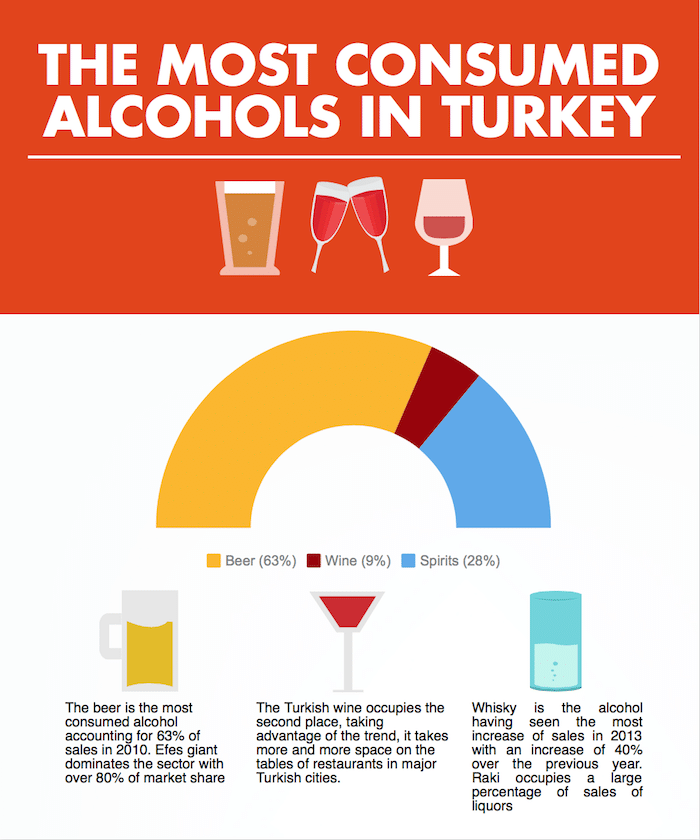
Another interesting fact, according to AFAA (French Association of Ethnology and Anthropology), consumption of alcohol in Turkey is associated with the number of years of education and social class. The more a Turkish citizen (man or woman) has graduated from a good university and comes from an educated background, the more his drinking is important.
In short, alcohol is drunk without complex in the secular and Westernized middle class in Western Turkey (Istanbul, Izmir, Bodrum…), and among Alevis, who are a branch of Islam which represents nearly 20 % of the population. Alevis are particularly present in the east of the country. Conversely, some cities such as Konya are known to be “dry” towns, cities where people are more conservative and drink less. In Istanbul, in central neighborhoods, alcohol is always drunk in an uninhibited manner and in recent years the wine houses and cocktail bars are popping up everywhere. Discover our article on Turkish wines and grape varieties, as well as the best places to drink in Istanbul.
The main Turkish alcohols:
The Rakı:
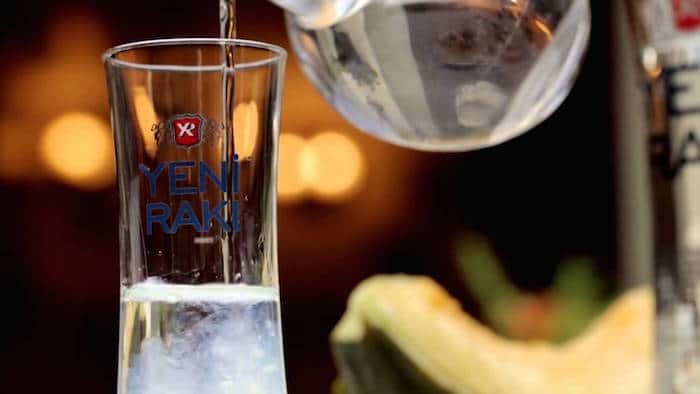
A glass of Turkish rakı.
The Rakı is the Turkish national alcohol, it is aniseed-flavored alcohol of 40-45 degrees similar to Pastis or Ouzo. It is made from different fruits in different regions, but we can say that grapes, figs, and plums are its main ingredients. This drink made in Anatolia has a history dating back from 300 years, a history that began in the Arab world with fruit liqueurs and that spread to neighboring countries. With the addition of anise in the late 19th century to ease the taste, raki took its Turkish characteristic.
The Rakı the table alcohol by default in Turkey, where, instead of wine or beer, it accompanied the dishes in the restaurants of meat and fish. It is even said that it’s hot and cold mezes (Turkish tapas), as well as fish that accompany the drink rather than the reverse. A meal with rakı usually begins with a slice of cheese like feta cheese (beyaz peynir), and melon (kavun).
To drink rakı in the traditional Turkish way we advise you during your stay to go to a “rakı-balık”, which literally means raki-fish. The meal begins with cold mezes, like eggplant caviar, mashed beans, pickled seabass, then hot mezes like little grilled sardines, grilled squid, and octopus. For the greediest, you can then enjoy a fish. These are usually long and friendly meals.
A number of rules are to be respected with the consumption of rakı. First, you never drink alone, you drink with friends or with people you love, then rakı is served in a glass of rakı with a glass of water and the arrival of the first mezes. The youngest person at the table should serve the glasses. We first serve the rakı, the water, and then the ices. Nobody drinks until the oldest person in the table raises his glass to toast. We toast with the bottom of the glasses, and it should be drunk slowly because even if everyone will finish a little drunk it is badly seen to be wasted at a rakı table.
In Turkey, rakı is nicknamed “The lion’s milk’ because of the white color it takes after adding water. The best-known rakı brand is the Yeni Rakı, but other brands are good like the Yeşil Efe (made from grapes) or the Tekirdağ Rakı. You can also try the Kulüp Rakı, the preferred brand of Atatürk, though a bit more expensive.
Turkish beers (“bira” in Turkish):
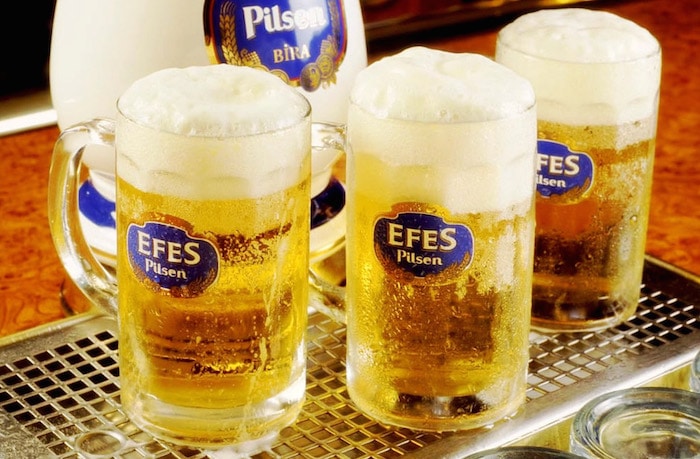
Efes, the first Turkish beer.
Although beer existed in Anatolia since the Sumerians, the modern history of beer in Turkey dates back to the Ottoman Empire. The Armenians of Erzurum already served some in beer gardens of the city (bira bahçeleri), but it was not until the arrival of Bomonti brothers from Switzerland in 1890 that Turkey knows its first industrial production of beer. Several followed, as the German brewer Karl Hofner who settled a factory in Antalya. Atatürk, the father of modern Turkey installed an ale brewery in Ankara. Today the largest brewer in the country is Efes with over 80% of market share, and it’s also the fifth-largest brewer in Europe.
The most common brand is the Efes, available in several sub-brands like Efes Dark (dark beer), the Efes Light (fewer calories), the Efes Extra (high alcohol), and Mariachi (fruity). You can order your beer bottled (şişe) or draft (fıçı). Another well-known brand lager is the Bomonti. Finally, in recent years a new Turkish brewery was established in Bodrum, this is the Gara Guzu, which offers quality ale and amber beers.
The Carlsberg and Tuborg brands are also produced in Turkey and very popular in the country. Since a year or two breweries are very popular in Istanbul, and it is not uncommon to find institutions like Taps Bebek or Nişantaşı Kozmonot to offer hundreds of brands of international and local beers.
The Turkish wine (“şarap” in Turkish, pronounced “sha-rap”):
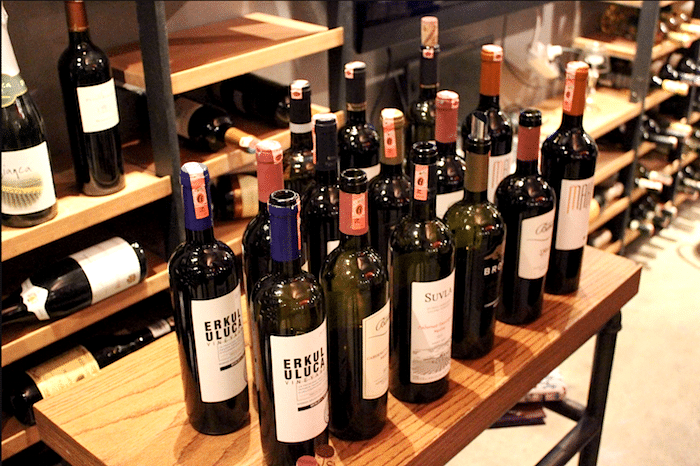
A Turkish wine tasting.
Wine, having been forbidden under the Ottoman Empire (except for the Christian populations) has resurfaced in Turkey in 1925 thanks to the secular principles of Mustafa Kemal Atatürk (again!), but it is especially since the early 2000s that local production is back in force on the tables of restaurants, in part with the help given to Turkish producers by foreign winemakers and sommeliers (mainly French).
There are now a large number of different brands and it is a growing market; the wine is now the second most consumed alcohol in the country. Although Turkey is the fourth-largest producer of grapes, only 5% of this production is dedicated to the production of wine, it is a market with limitations because of the high taxes, which makes its export difficult.
Wine is made everywhere in Turkey, there are over 60 different grape varieties, many of them are French varieties that were introduced in Turkey in the 70s such as Merlot, Cabernet, Chardonnay, Pinot, and even Riesling. The country also has quality varieties as Öküzgözü and Boğazkere (red) grown in Anatolia and on the banks of the Black Sea. The Kalecik Karası (red) in the Aegean region and Cappadocia, the Emir (white) Central Anatolia, and Sultaniye (white) areas of the Black Sea and Anatolia.
You should know that the Turkish wine is generally high in alcohol (14 degrees) and expensive (especially in tourist areas where they serve you the Angora brand, a wine that is the first prize of the Turkish cheap wine). It is possible and more and more common to find affordable quality wines in many restaurants outside of Sultanahmet, and even wineries, blooming everywhere in Istanbul.
Do not hesitate to read our article dedicated to Turkish wines and grape varieties. You will also find our selection of the best Turkish wines and the best wine cellars in Istanbul.
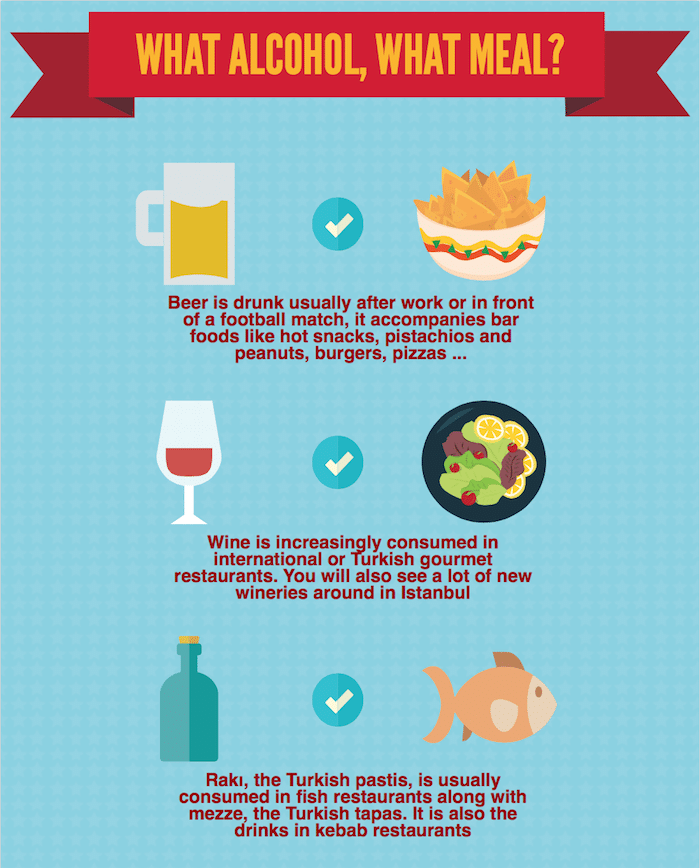
A small reminder: in Turkey to toast you say “Şerefe”, it means “to honor”.
Do not hesitate to contact us if you have any questions and do not hesitate to share your experiences in the comments.
Şerefe!


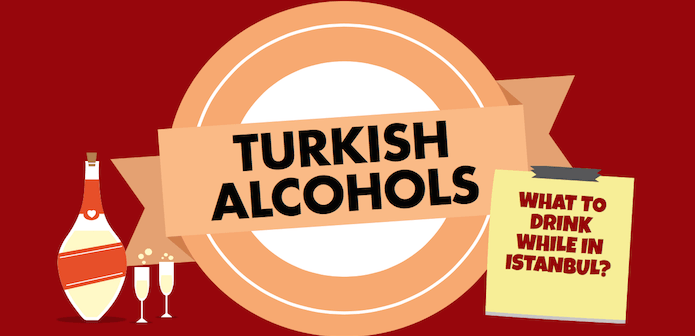
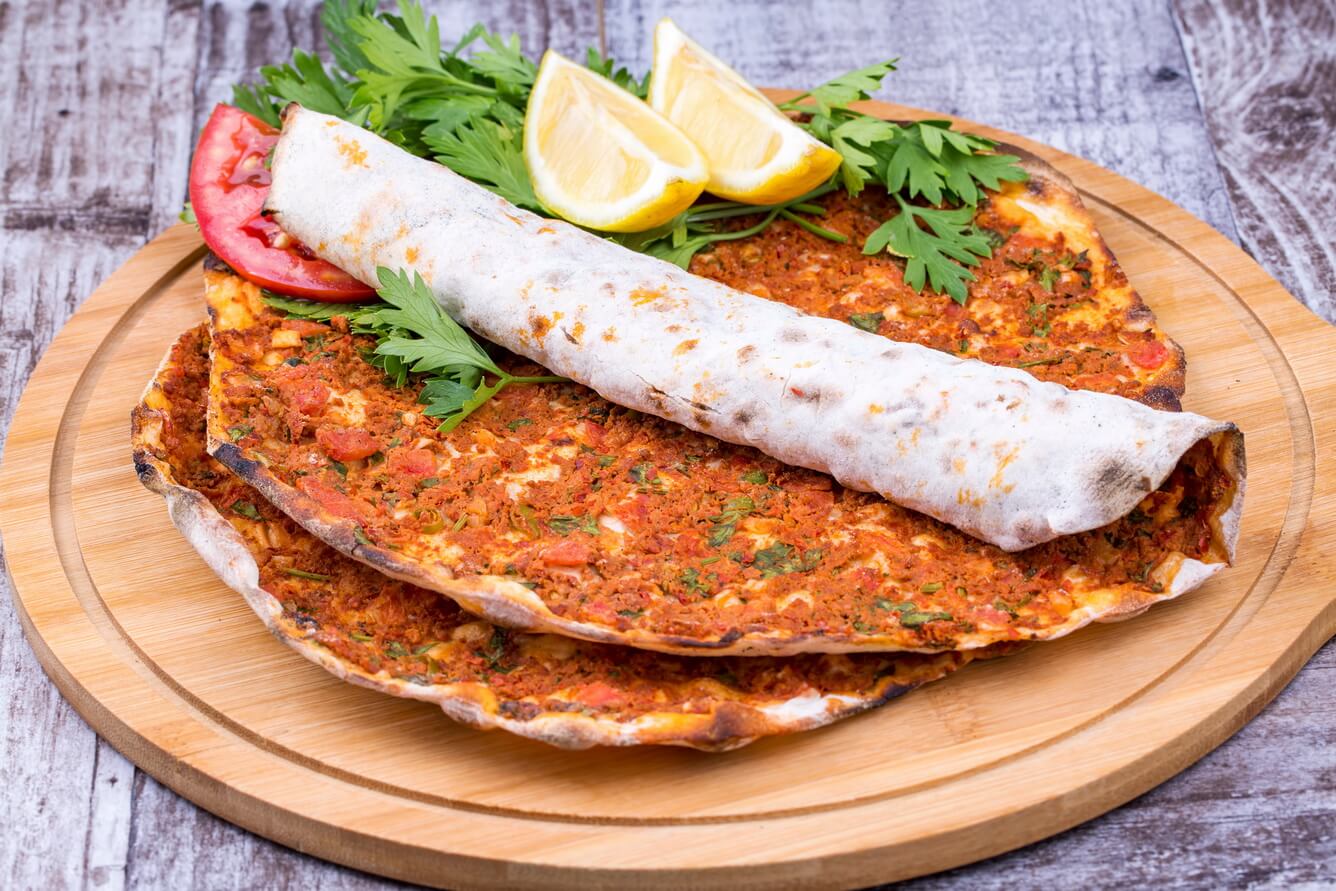

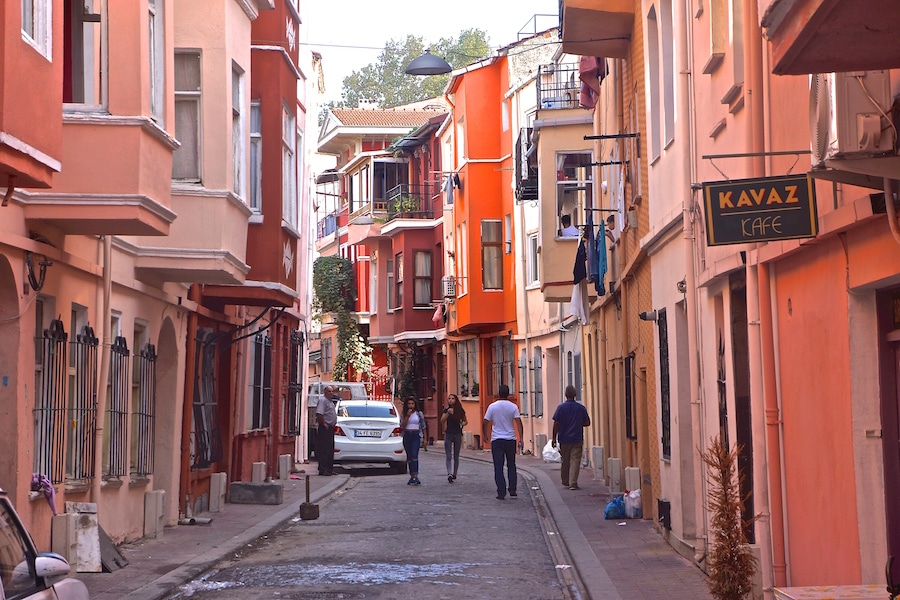
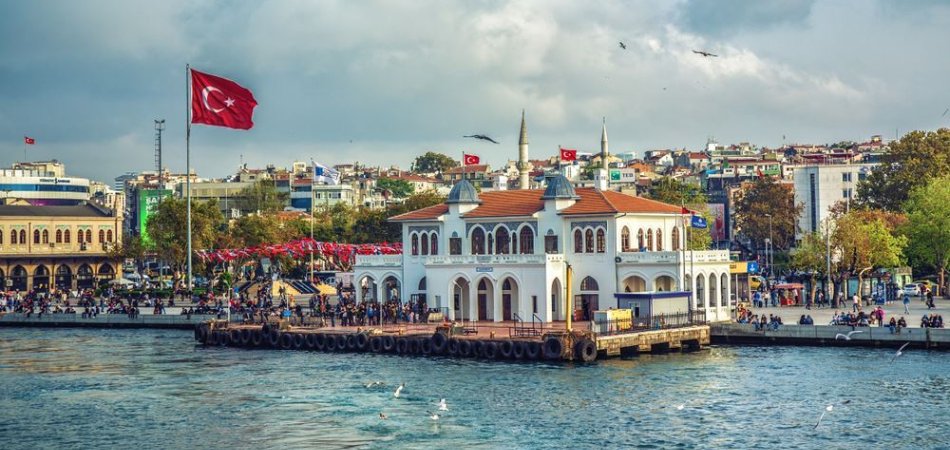

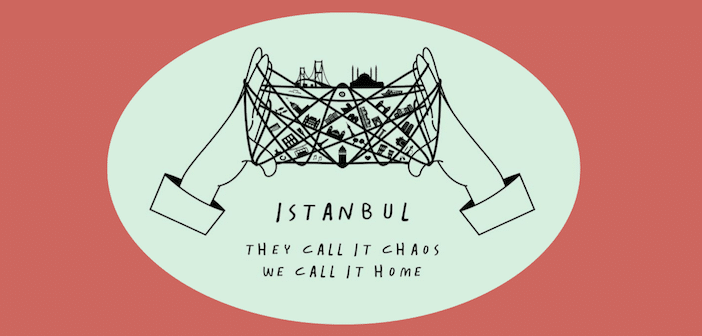
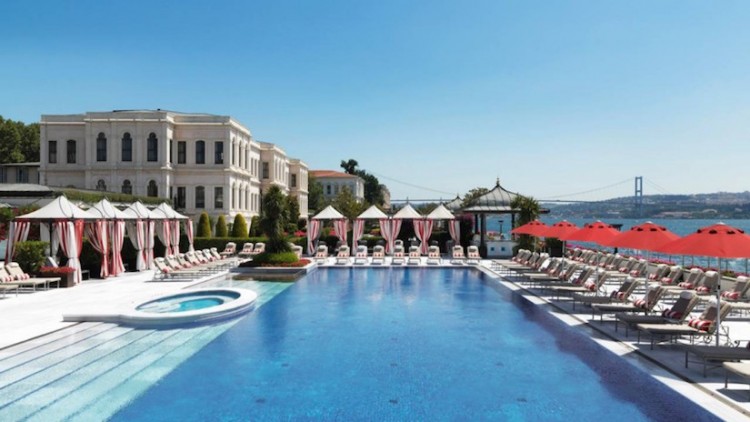
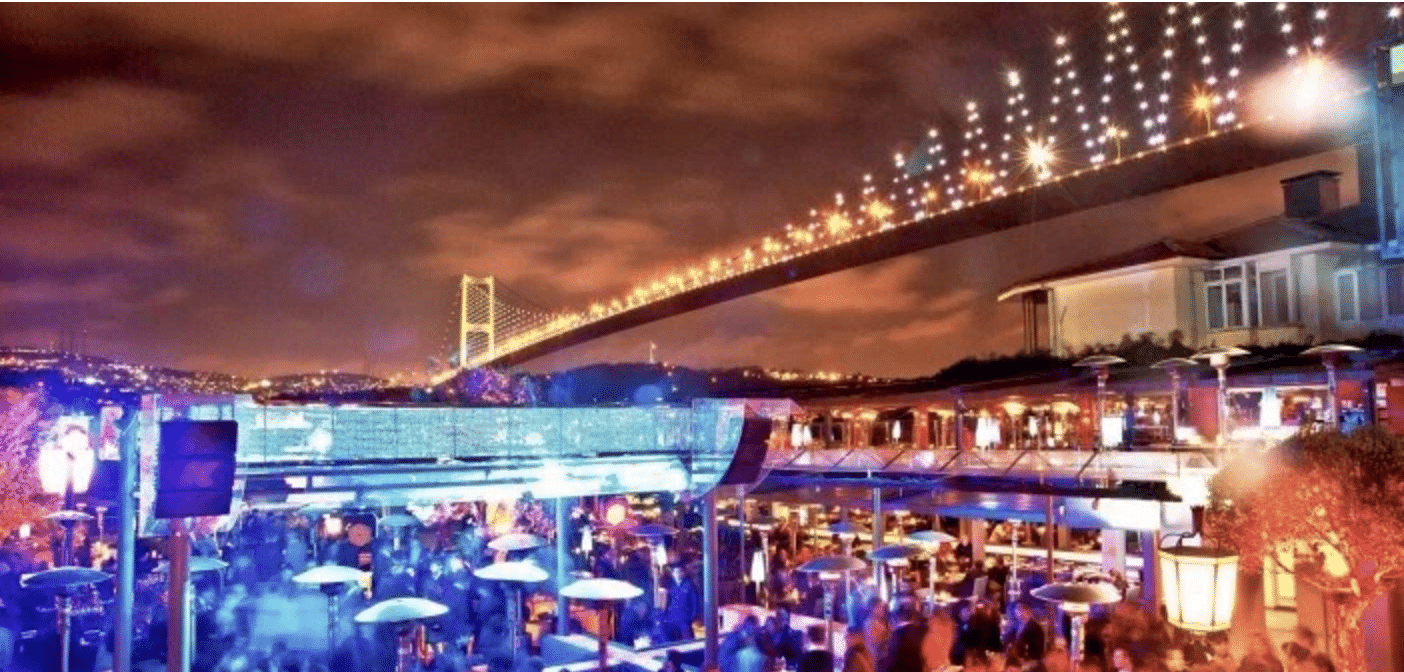
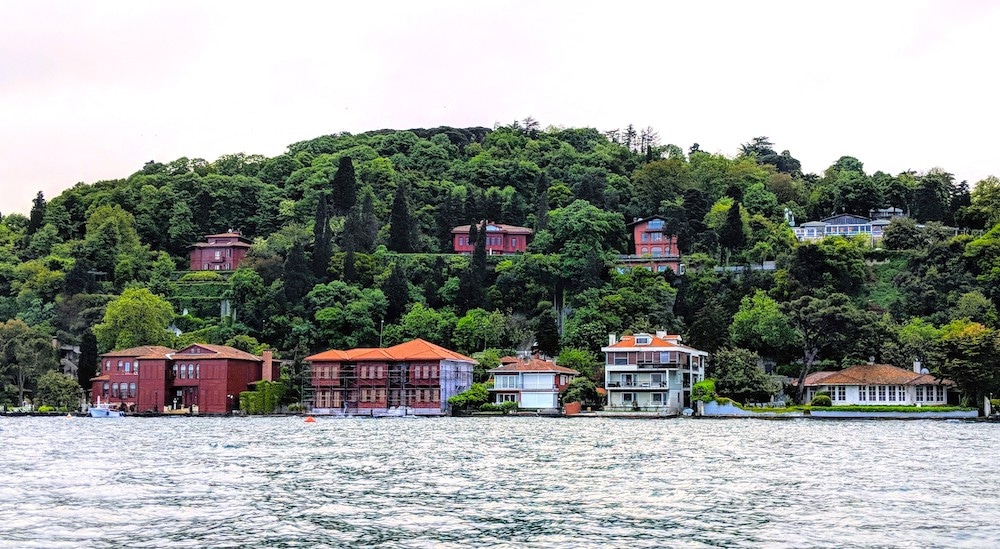
0 Comments